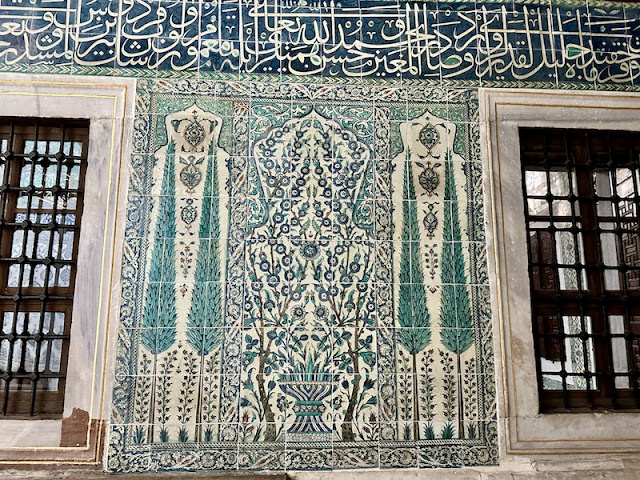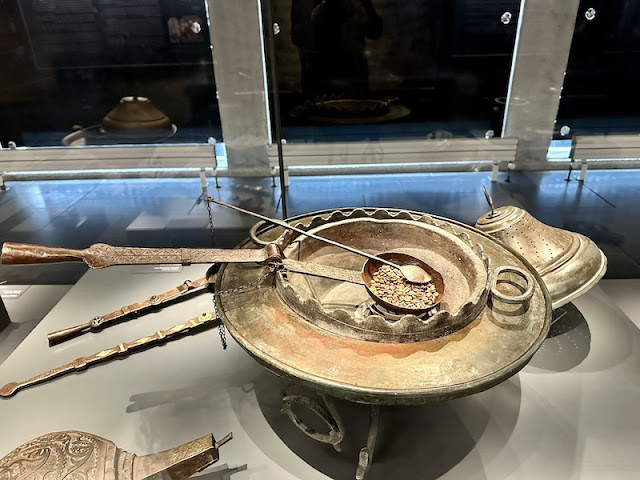A quick travel turn-around. Covid postponements have stacked things up in 2022. We are in Turkey for meetings of the International Counsel for Evangelical Theological Education (ICETE) with whom Steve is a senior consultant.
On layovers in Amsterdam I love to stop in the Rijksmuseum's exhibition space in the middle of the terminal. This time they featured 19th-c landscape art rather than the 16th- and 17th-c work they are so famous for.
Islam is on the rise in Turkey after decades of striving to be a secular country, which tended to define freedom of religion as freedom from religion. The city is full of mosques. We hear their calls to prayer from several directions, reminders to pray for this country.
Originally Constantinople, the Eastern capitol of the empire, Roman ruins are still scattered about the old parts of the city.
When we were here seven years ago for the same meetings, we skipped the Topkapi Palace since there was so much else to see. This time we lined up a tour via TripAdvisor. The towers at the first gate looked perfect for Rapunzel to let down her long golden hair.
Like on the Danube, we found opulent ceilings.
This is the "family room" in the harem. Concubines served as maids to the wives, everyone competing to be recognized and desired by the sultan. Despite the opulence, it sounds like a miserable life to me.
At the far end of the palace complex (which housed about 5000 people) were pleasure palaces overlooking the Bosporus and Sea of Marmare.

Looking north to the Bosporus with Europe on the left and Asia on the right. At one point the Ottoman Empire stretched from Vienna to Egypt over three continents.
Before returning to our hotel for naps, we enjoyed an outdoor lunch of Turkish meatballs (Steve) and mushroom screwers (LeAnne). And to think it is well below freezing at home right now.









No comments:
Post a Comment